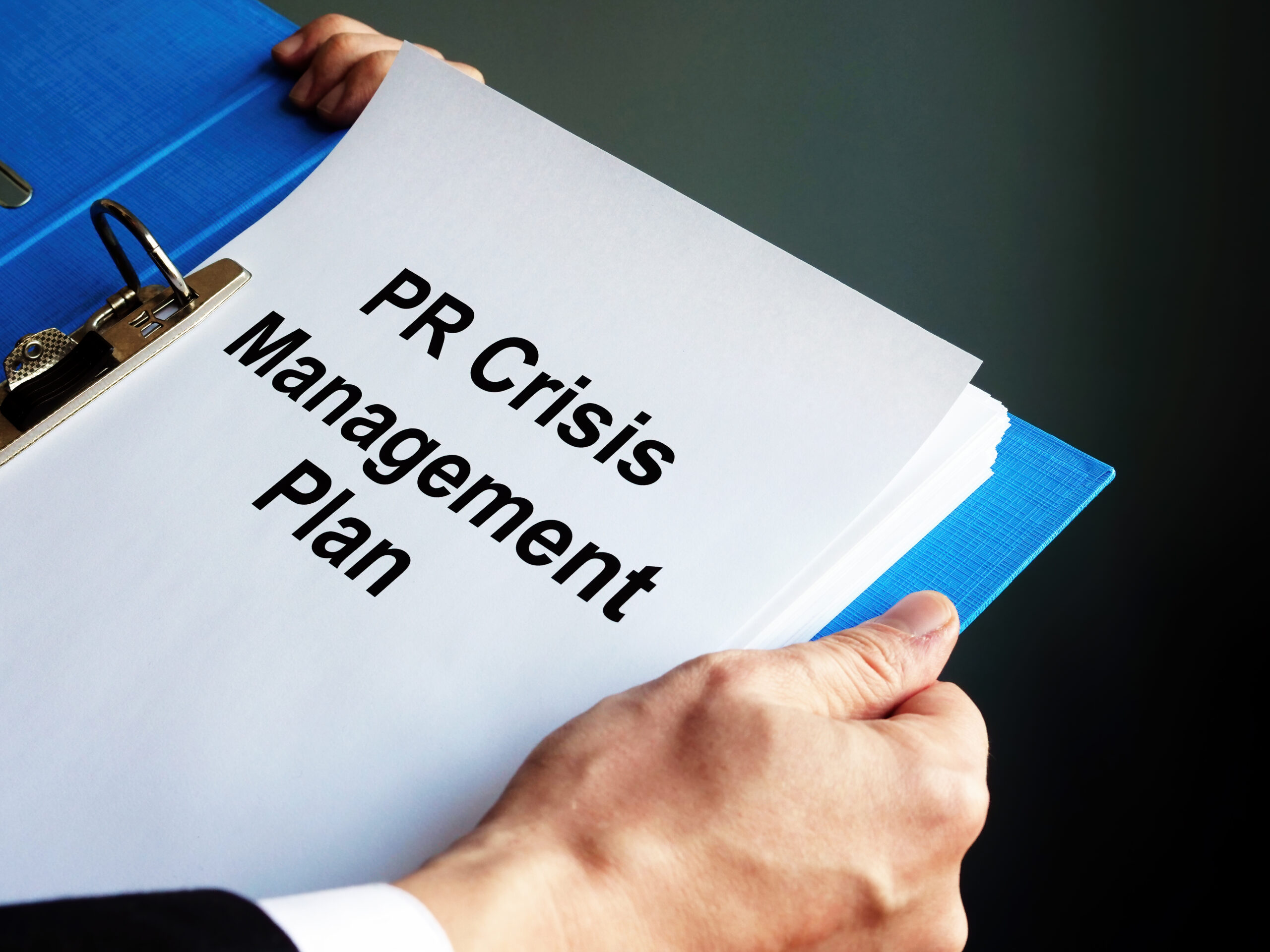
Crisis management is an essential component of public relations as it covers unforeseen and possibly destructive events that can have a big influence on an organization’s reputation. These kinds of events can arise at any time, and they can occur anywhere following the speed and reach of information can swiftly aggravate a crisis situation in today’s fast-paced and interconnected world. With that, it is essential for businesses to have a robust plan in place for managing crises.
An organization’s reputation can be safeguarded and the effects of negative situations can be lessened through the application of effective crisis management. This is of utmost significance in the current era of rapid information dissemination enabled by the internet, when even a single unfavorable occurrence has the potential to quickly spread throughout the internet and cause major harm to an organization’s reputation. A business may respond more swiftly and appropriately to a crisis, maintain control of the narrative, and reduce the long-term harm to its reputation with the assistance of a crisis management strategy that has been thoroughly established.
In addition, having a sound plan for handling crises can assist an organization in avoiding or at least mitigating the negative repercussions, both legally and monetarily, that may result from a crisis. If an organization has a plan in place, it will be able to respond effectively to legal and regulatory inquiries, which will shield the organization from the possibility of being sued.
Mr. Toteng Tanglao, Director of Comm&Sense Communications, one of the top PR agencies in the Philippines, claims that the following is true: “Don’t jump to any conclusions, but do be prepared for the unexpected. As a professional in the field of public relations, this has been my way of thinking all along.” Improving one’s situational awareness and making enough preparations in advance are necessary components of adopting a mentality of “always ready,” which comprises turning incoming attacks into a surprise return.
Mr. Tanglao advises that a crisis management team should be established, which will include a Chief Executive Officer, other top executives, attorneys, and key employees from the departments of marketing, communications, human resources, and information technology. The purpose of this team is to help the company achieve a sense of readiness. Alternates should be assigned to each functional role to guarantee that the organization is always ready to respond, even in the absence of critical employees. This can be accomplished by assigning alternates to each role.
Moreover, it is important for the company to choose a spokesperson to function as the primary point of contact for all media queries. This individual should be well-versed in the organization and have professional media training to ensure poise even when under intense scrutiny and scrutiny from others.
It is also vital to carry out a detailed audit of the risk assessment. This should entail identifying specific company vulnerabilities that could potentially make a prospective disaster worse, as well as doing a SWOT analysis for each individual occurrence. This will assist in the generation of a message that will resonate with a wide variety of the audiences that will be targeted.
Furthermore, developing a crisis communication strategy is important to incorporate both immediate and extended messaging. Materials such as holding statements, news releases, and commonly asked questions should be prepared ahead of time. Additionally, a clear and open procedure for the approval of crisis communication needs to be developed. In order to maintain trust among workers and stop the loss of that trust over time, there ought to be both an internal and an external communication system in place.
In relation to that, Mr. Tanglao stressed how essential it is to involve the media in the crisis management process. “It is essential to create a relationship with the media so that when a crisis comes, they will be more likely to share your side of the story,” he added. “When a crisis arises, they will be more eager to share your side of the story.”
In order to effectively manage a crisis, it is not enough to simply have a plan drawn up; one must also maintain a mentality that is always prepared for the unanticipated. Realizing that in today’s fast-paced and linked world, a single unfavorable event can quickly snowball out of control and cause considerable damage to an organization’s reputation is essential. Recognizing that a crisis presents a chance to showcase the principles, integrity, and resilience of your company is an important aspect of this.
Understanding that effective crisis management isn’t just about defending your organization’s reputation, it is also about safeguarding your stakeholders, employees, and customers. It is not the absence of a crisis that is the ultimate indicator of an organization’s success in crisis management, rather it is how the crisis was managed and what was taken away from the experience. It’s about being able to grow from difficult situations in the past, adjust, and get better ready for the next one that comes along.

















